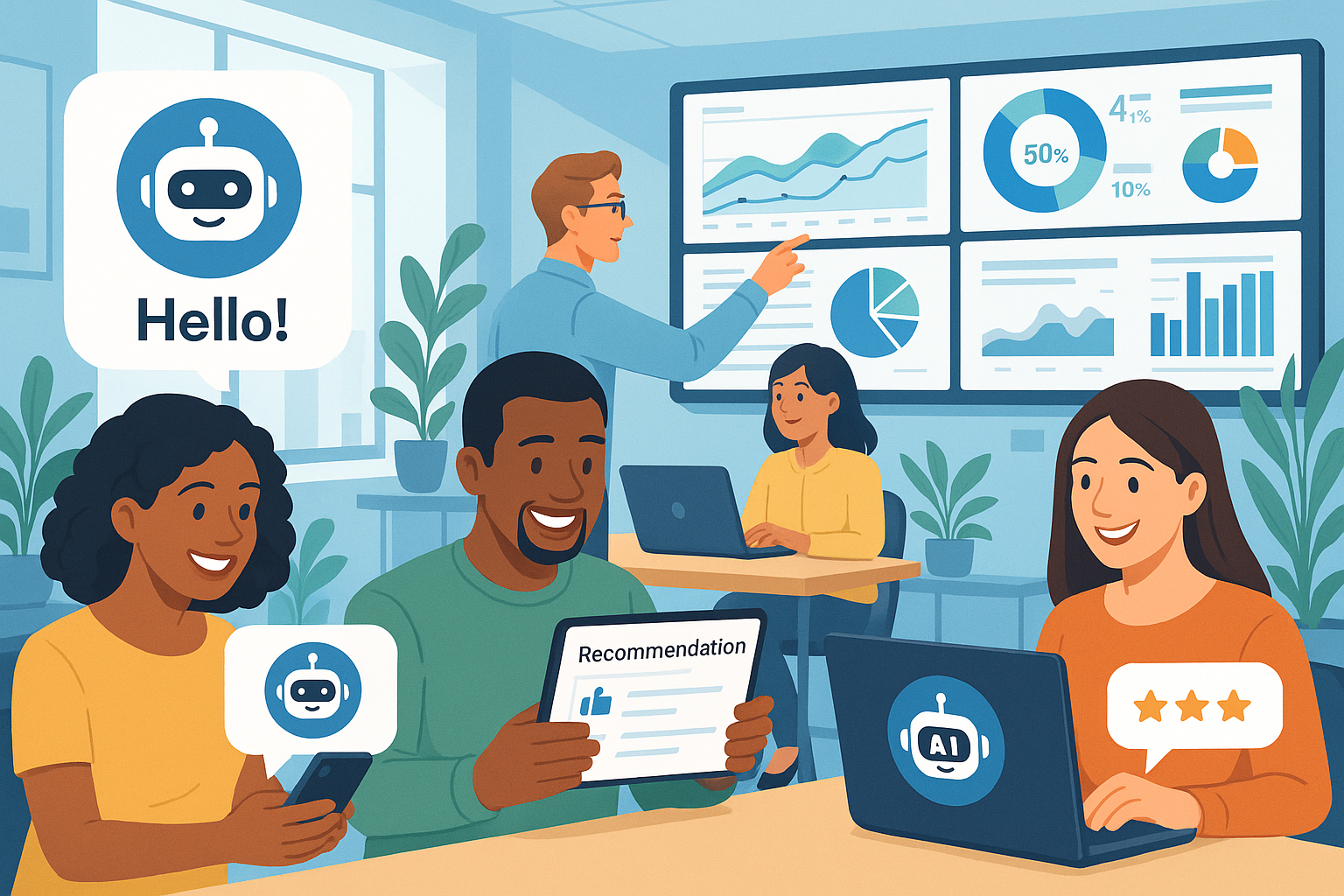Harnessing AI-Powered Personalization to Transform Customer Journeys for SMBs

Introduction
In the fast-evolving world of small and medium-sized businesses (SMBs), the adoption of AI is no longer a novelty; it's becoming essential for survival and growth. AI-driven personalization is revolutionizing customer interactions, enabling tailored experiences that engage customers more efficiently than ever. At the heart of this transformation are chatbots and AI tools that empower businesses to offer individualized experiences at a scale that was previously unimaginable without substantial resources.
The Power of AI Tools and Chatbots
One of the standout benefits of AI chatbots is their ability to provide 24/7 support, ensuring customers receive prompt responses to inquiries. This immediacy not only reduces wait times but also enhances customer satisfaction—essential for SMBs that may have limited staffing resources. Using advanced machine learning techniques, chatbots can analyze user data, such as browsing habits and purchase history, to create personalized recommendations and support. This level of personalization isn't just a luxury; it’s a necessity in today’s competitive landscape.
Moreover, AI tools ensure that interactions remain consistent and aligned with brand messaging. For businesses striving to cultivate a strong brand identity, delivering "enterprise-grade" experiences—regardless of their size—is now achievable.
Trends Transforming the SMB Landscape
As we look toward the future, it’s clear that AI-driven customer support automation will continue to gain traction. By 2025, many SMBs are expected to deploy AI-driven agents for managing inbound queries, tracking orders, scheduling appointments, and resolving various customer issues. The deployment of chatbots for these tasks has proven invaluable, significantly improving operational efficiency and customer satisfaction rates.
Another exciting trend is the emergence of intelligent dashboards and predictive insights, which aggregate data from CRM systems, invoicing software, and other platforms to deliver real-time business insights. This capability enables SMB owners to make informed decisions proactively rather than reactively, paving the way for smarter business strategies.
Real-world examples illustrate this potential. In the hospitality sector and auto retail, businesses utilizing bespoke AI agents have witnessed remarkable improvements—AI can streamline lead management, automate personalized follow-ups, and enhance the overall efficiency of sales processes.
Measuring the Impact of AI
Implementing AI tools shouldn't be a shot in the dark. To truly gauge their effectiveness, SMBs need to track various key performance indicators (KPIs). Metrics like Customer Satisfaction Scores (CSAT), Net Promoter Score (NPS), response and resolution times for support inquiries, and conversion rates are critical in determining how well these technologies are performing. Additionally, assessing customer retention and churn rates can offer insights into the long-term impact of personalized engagement strategies.
Cutting-Edge Technologies Energizing the Experience
The landscape of AI technologies is broad and growing. Machine learning algorithms allow businesses to craft dynamic, tailored content and recommendations based on user behaviors. Natural Language Processing (NLP) enriches chatbot capabilities, facilitating fluid communication that feels natural and human-like. And let’s not overlook generative AI, which is changing how businesses create personalized content at scale—whether it’s drafting emails, generating social media posts, or creating customer responses more efficiently than ever before.
Overcoming Challenges to Adoption
While the benefits are clear, the road to AI adoption isn’t without hurdles. Many SMBs struggle with a lack of internal expertise, as AI specialists are often in short supply. Additionally, integrating these new tools into existing workflows and data systems can be complex and challenging. Moreover, ensuring that customer data is handled securely and in accordance with privacy regulations is paramount.
To overcome these obstacles, businesses should start with clear use cases. Focusing initial efforts on the most impactful applications—such as automating customer support or enhancing lead qualification—can yield quick wins. Leveraging readily available, managed solutions can also alleviate some of the technical burdens, enabling businesses to implement AI without heavy investment in internal resources.
Establishing iterative implementation processes, continuously monitoring metrics and adapting based on feedback, will empower businesses to refine their strategies over time. Most importantly, prioritizing data hygiene and privacy will help build trust with customers.
Actionable Insights for SMB Stakeholders
Each stakeholder within SMBs can harness the power of AI:
- Business Owners can tap into AI agents to drive growth. Statistics reveal that 91% of SMBs employing AI technology see revenue increases, while 86% experience improved margins.
- Marketers can utilize AI for personalized advertising strategies and campaign optimization, leading to higher conversion rates and stronger customer loyalty.
- Developers have new opportunities with APIs and no-code solutions that lower the technical barriers, permitting seamless integration of AI features without the need for extensive coding expertise.
Conclusion
In conclusion, AI-powered personalization is reshaping how SMBs engage with their customers. By leveraging chatbots and advanced AI tools, businesses no longer have to rely on vast human resources to provide individualized experiences. As the journey of AI integration unfolds, those who embrace these advancements will not only enhance their customer journeys but also realize substantial business benefits. Untap is leading the charge by providing smart, tailored customer service solutions that help businesses connect with their audience like never before—driving engagement, satisfaction, and conversions effortlessly.